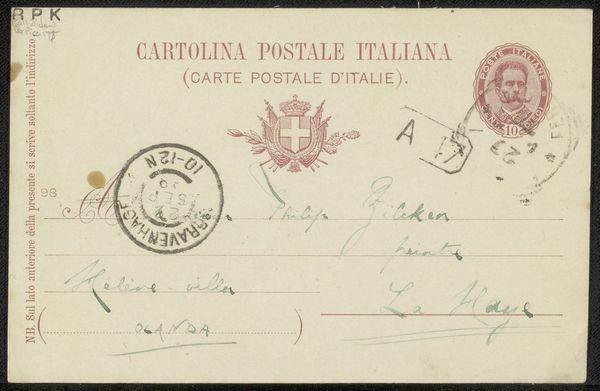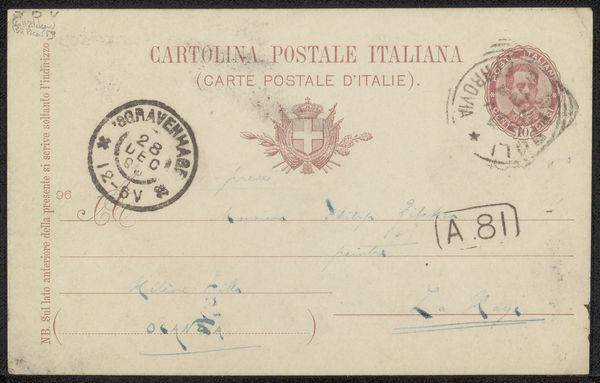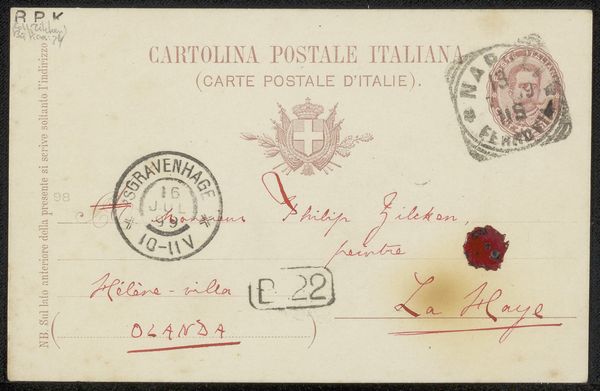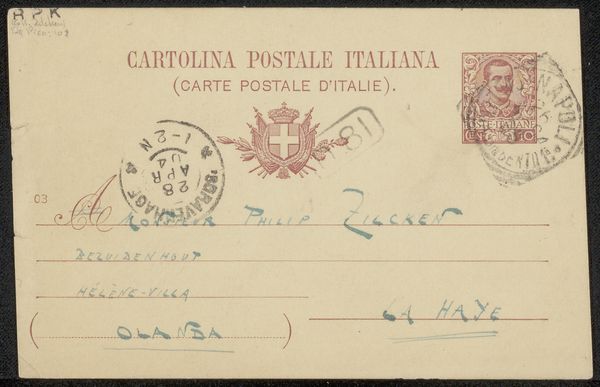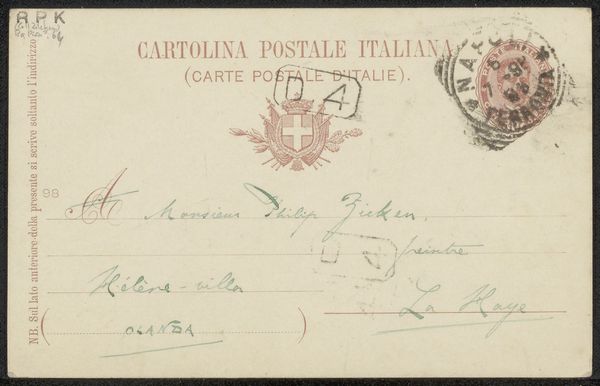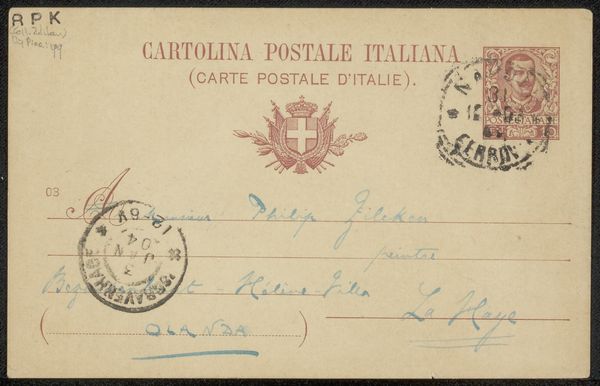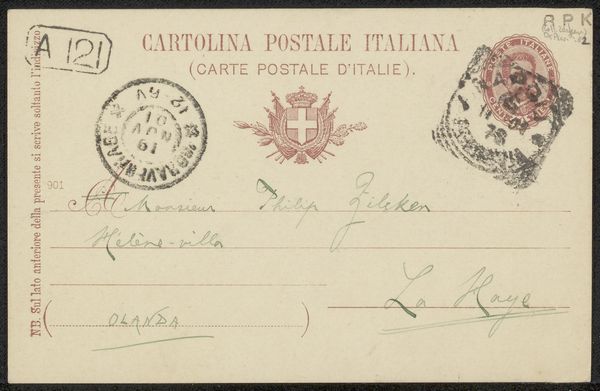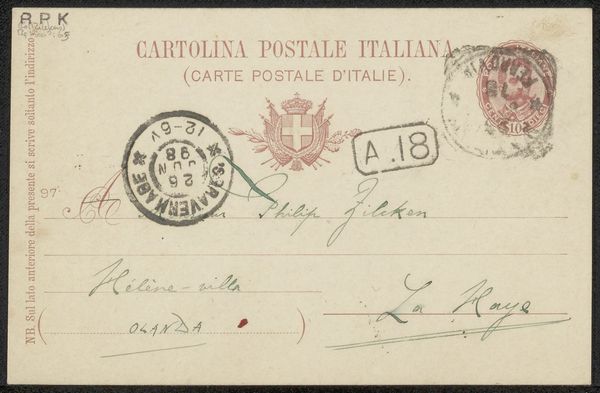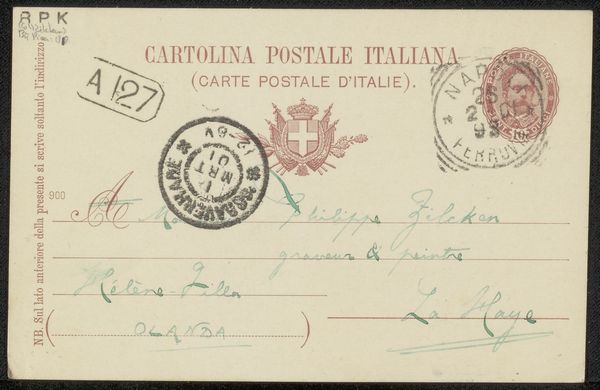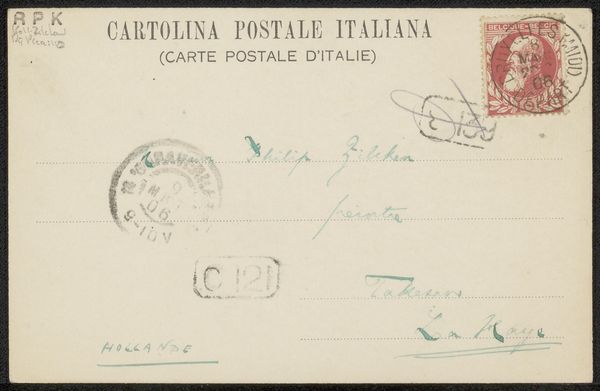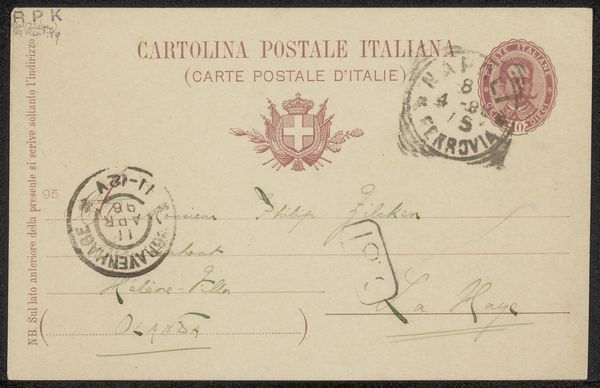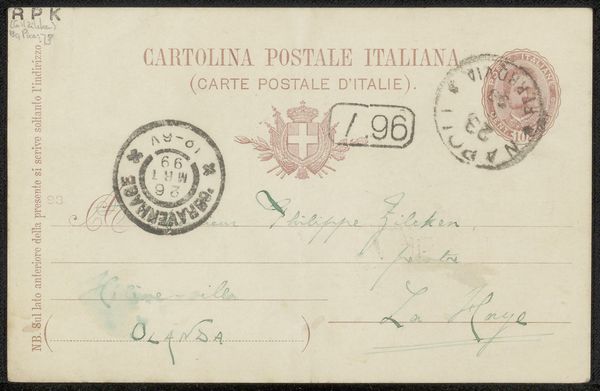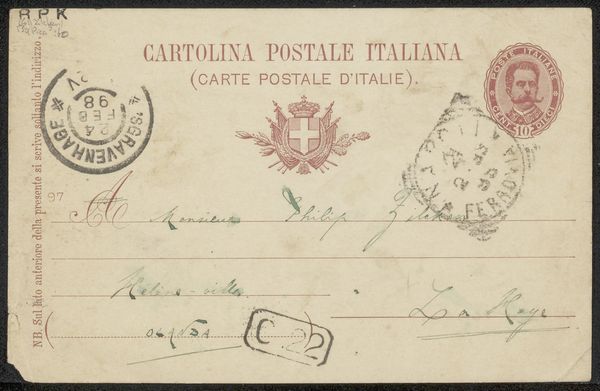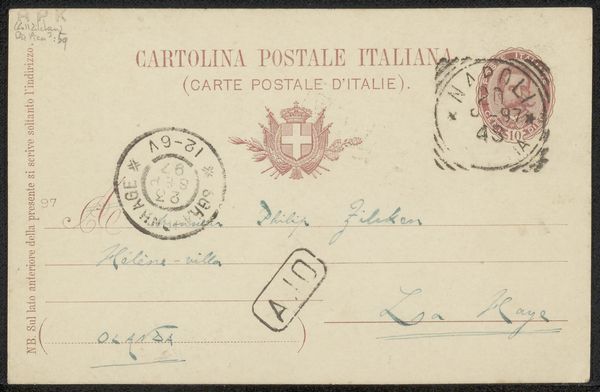
drawing, print, ink
#
drawing
# print
#
ink
Copyright: Rijks Museum: Open Domain
Curator: This rather unassuming piece, titled "Briefkaart aan Philip Zilcken," tentatively dated 1897, uses ink in a print and drawing style. Editor: The immediate sense is of intimacy and distance coexisting, isn't it? A whisper across time. There's a certain bureaucratic chill in the printed parts clashing beautifully with the warm messiness of handwriting. Curator: Exactly! Postcards, in their heyday, were about forging connections but also managing space and etiquette. What’s interesting here is the layering of officialdom, with that Italian postal service stamp— the crowned emblem screams national pride — and the private correspondence etched in faded ink. Do you see any symbolic echoes in this visual narrative? Editor: The circle is the major recurring visual element. From the cancelation stamp over “'s Gravenhage," what is today The Hague, obliterating time itself in the name of punctuality, to that circular vignette containing some royal profile on the stamp, everything loops back on itself, almost self-enclosing. There is a potent metaphor of empire at work here, wouldn’t you say? These messages are caught within that official framework. Curator: That stamp! I almost missed it! The act of stamping the letter is a fascinating exercise of sovereignty, like signing a contract but also somehow canceling it with one blow. Did it really need to be stamped *twice* though? Someone really, really wanted this correspondence to exist and disappear at the same time. I also think that is true of much correspondence between artist. Editor: The contrast is captivating: official symbols pressing against ephemeral personal intentions. Perhaps our correspondent pondered about what to write? What they truly felt? And how all these self-reflections could translate through the bottleneck of a written medium over state structures... I mean, every line, signature, is charged with that tension! Curator: I suppose there is something innately poignant about these forgotten scraps of correspondence, the faint, enduring ghosts of long-ago sentiments making their mark, quite literally. Editor: Precisely. Even knowing practically nothing about the piece or author, these scraps evoke echoes. Isn't that all memory ultimately becomes: an archaeological dig within ourselves.
Comments
No comments
Be the first to comment and join the conversation on the ultimate creative platform.
